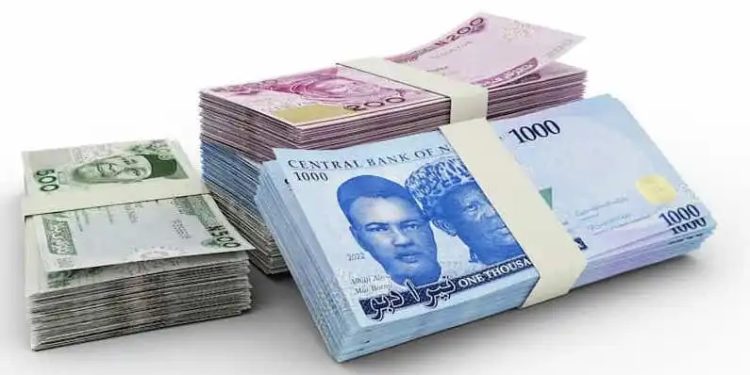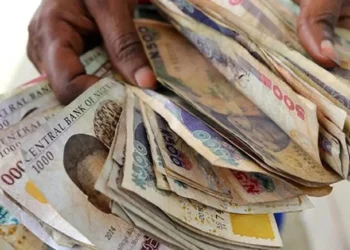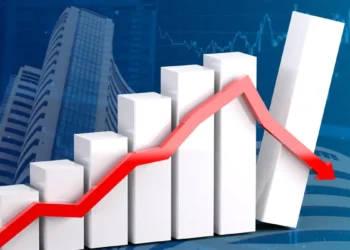The Nigerian naira has broken the N1,650/$ threshold in the official foreign exchange market, reflecting ongoing volatility in the country’s currency. Data from the Nigerian Autonomous Foreign Exchange Market (NAFEM) shows the naira depreciated by N106.05 to trade at N1,658.97 per dollar, compared to its previous rate of N1,552.92 per dollar on Monday.
The devaluation of the naira comes at a time of significant economic reforms, including the removal of gasoline subsidies and changes in foreign exchange policies, aimed at stabilizing Nigeria’s economy. While foreign investors have welcomed these reforms, viewing them as a necessary step to avoid fiscal collapse, they have also contributed to a surge in inflation and an increased cost of living for many Nigerians. These challenges have sparked protests across the country, leading to a harsh response from security forces.
Chief Economist at the World Bank, Indermit Gill, highlighted the competitiveness of the naira, stating that its real exchange rate is at its most favorable level in over 20 years. Speaking at the Nigerian Economic Summit in Abuja, Gill praised the government’s economic reforms, noting that they have helped prevent Nigeria from facing a severe fiscal crisis. However, the naira’s depreciation has had a substantial impact on ordinary Nigerians, exacerbating poverty in a country already grappling with economic inequality.
A World Bank report underscores the naira’s struggles, ranking it among the worst-performing currencies in Sub-Saharan Africa in 2024. The currency has lost 43% of its value between January and August, placing it alongside the South Sudanese pound and the Ethiopian birr as one of the weakest currencies in the region.
International factors have also played a role in the naira’s depreciation. The U.S. Dollar Index has strengthened due to robust U.S. economic data, including positive job and inflation reports. This has lessened expectations for a swift reduction in interest rates by the Federal Reserve. Although traders had initially anticipated more aggressive cuts, current market sentiment suggests a more cautious approach, with the Fed expected to reduce rates by 25 basis points in its upcoming November meeting.
Meanwhile, central banks globally continue to adjust their monetary policies. Federal Reserve officials have signaled a slower pace of rate cuts, while the European Central Bank is also expected to announce a 25-basis-point reduction later this week. These global economic trends, combined with Nigeria’s domestic reforms, will continue to influence the naira’s performance in the coming months.
Despite the economic turbulence, experts see potential long-term benefits from Nigeria’s reforms, but the immediate effects on inflation and currency depreciation remain a pressing concern for the country’s citizens.










